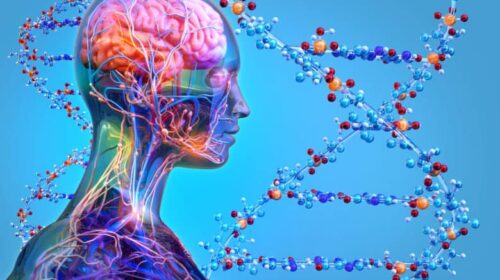Every family is unique and – while none is perfect – each has the opportunity to grow and improve, particularly with every new generation.
Those who struggle with addiction affect not only themselves, but their children and grandchildren as well. Healthy families are created through intentional and consistent efforts. By recognizing and breaking unhealthy generational cycles, then carefully crafting new ones, families can confront and overcome the hurdles posed by addiction and intergenerational trauma. In this article, we’ll discuss the deep and long-lasting effects of addiction across generations and equip you with insights and tools to protect yourself, your family, and future generations.
Exploring Intergenerational Trauma
Intergenerational trauma refers to trauma that carries over from one generation to the next, such as from a parent to a child, or a grandparent to a grandchild. This kind of trauma can occur through biological, environmental, psychological, or social means. Although trauma can stem from many different incidents and circumstances—including war, natural disasters, domestic violence, etc.— we’ll specifically be covering trauma that’s passed along by family members impacted by addiction and substance use disorders.
According to the Family Stress Model, stressors experienced in the family of origin are associated with emotional distress, disrupted family relationships in adulthood, and poor developmental outcomes for the next generation. Thus, what happens during your childhood can often predict how you develop and behave as an adult, as well as the struggles you experience in these later stages of life.
For example, a grandparent’s addiction can lead to physical absences in the home and create emotional difficulties for the entire family unit. This leaves their children to fend for themselves, internalize negative messages, and develop similarly harmful coping mechanisms. As adults, these individuals may repeat these same patterns with their own kids, perpetuating the cycle again and again. This is intergenerational trauma: a cycle that tends to keep on repeating itself until someone decides to make a change.
Addiction’s Effect on Families Across Generations
Addiction’s effect on families is well-documented. Research shows that the emotions, behaviors, and tendencies associated with addiction are often passed down from grandparents to parents and then to their children.
In fact, children of parents with substance use disorders are much more likely to display similar coping methods and behaviors as their parents. They’re also at a higher risk of developing an addiction themselves. In one study, researchers explored three generations and found that the grandchildren of individuals facing addiction have a significantly higher likelihood of developing similar struggles, particularly when their parents also have behavioral or mental health disorders. Below, we’ll examine the intergenerational impact of addiction, delving into the specific effects on grandparents, parents, and children.
First Generation: Grandparents
The intergenerational cycle begins with the grandparents. Often, their addiction leads to abuse or neglect within the home, creating a chaotic and toxic environment for their children, described by researchers as “an everyday drama characterized by tension, threats, blame, and manipulation.” This type of instability can leave lasting scars on children, putting them at a higher risk of behavioral and mental health disorders, and causing them to develop insecure attachments with their caregiver. Whether the grandparents are aware or not, their children pick up on every little behavior, and, thinking this is how they’re supposed to react and behave, are likely to repeat these patterns as they grow up. In some cases, these children become caregivers for their parents. As they learn to neglect their own needs to care for their parents, they come to believe that their worth is tied to their ability fix the family’s problems, leading to issues like codependency later in life.
Second Generation: Parents
The second generation are the children of the first, who are now parents themselves. Despite never getting to truly enjoy their childhood, they now must navigate life on their own, usually without the tools to do so. Research shows that by young adulthood, 53% of children of alcohol-abusing and dependent parents develop an alcohol or drug use disorder, compared to 25% of their peers. They’re also at an increased risk for depression, anxiety, and low self-esteem.
Trying to not repeat the same patterns from childhood with their own children, these parents may be too overprotective. In some cases, they might use harsh discipline to maintain control and keep their children from making the same mistakes they did. However, this often backfires and only creates more fear, further eroding the parent-child relationship and worsening the dysfunctional cycle within the family.
Other parents who grew up around addiction may worry about being too hard on their children and display inconsistency or permissiveness in their parenting style, which can be equally as harmful. Due to their unstable upbringing and their attempts to cope with their trauma, they might struggle to show gentleness and authority, creating confusion for their kids.
Third Generation: Children
The third generation must grapple with their own difficult upbringing, as well as the trauma passed along by their grandparents. Children in the third generation are 7.5% more likely to face substance abuse themselves when they have a grandparent with an addiction. The effects of trauma and addiction from not one, but two, previous generations compound, creating an even higher risk of experiencing emotional, behavioral, and mental health issues. Common struggles include anxiety, depression, attachment issues, difficulty trusting others, antisocial behaviors, and trouble with emotional regulation.
Individuals in the third generation may feel a sense of hopelessness, believing that they’ll continue to repeat the same patterns of their parents and grandparents. Though they may have a strong desire to break free from the cycle, due to their upbringing, they might not have the tools, resources, or emotional capacity to do so. This can lead to self-destructive behaviors and unhealthy coping mechanisms, affecting their lives both personally and professionally. Difficulties at work and in school are common, and these individuals may form toxic, damaging relationships instead of healthy ones.
The silver lining of the third generation is that they have perhaps the greatest opportunity to break generational cycles of addiction and trauma in their family. Through awareness and early intervention, they can be the change they needed when they were just kids themselves, passing on hope to their own children and future generations.
For more information about addiction’s effect on families, you can read our article on Addiction Is a Family Disease.
Recognizing The Effects of Addiction
Many people affected by addiction go through life without ever realizing just how deeply past events influence their current feelings, behaviors, and family dynamics. Sometimes, it may feel too painful to confront these experiences head-on, so they’re ignored and suppressed. In other cases, people may not be able to connect their past to their present, particularly if addiction, trauma, and abuse were not openly discussed as they grew up. Further, individuals might still perceive their experiences as normal if they were never told differently.
This lack of awareness can keep people from healing and moving forward. Therefore, being able to recognize the impact of addiction where it exists is vital. Below are some of the ways to begin identifying these effects:
- Assess Your Behaviors and Emotions: Your behaviors are often a reflection of your emotions. While it’s natural to react to situations differently than others, it’s also important to consider whether these reactions are appropriate for the situation. Assessing how you manage emotions or let them control you can give you clues into past traumas you may have experienced.
- Evaluate Your Coping Strategies: Everyone handles stress differently, and some coping methods are healthier than others. When you’re feeling anxious, depressed, or stressed out, what do you do to help yourself feel better? If you’re resorting to harmful habits—like substance use—during times of stress, consider their origin.
- Analyze Your Interpersonal Relationships: Are you surrounded by people who lift you up, or do you gravitate toward individuals who add negativity to your life? Identifying the patterns in your interactions with others can help you determine the health of these relationships and whether they’re the result of unhealthy generational cycles.
- Consider Any Mental Health Concerns: Have you ever struggled with a mental health condition like anxiety or depression? These concerns could put you at a higher risk of addiction, as they’re often comorbid with it. Reflect on your mental health history and consider how it might be connected to your family’s history of addiction.
- Note Any Generational Patterns: Families often repeat patterns through generations because it’s all anyone knows. If there are recurring themes of addiction, abuse, or neglect in your family history, how do think it has affected you specifically?
Growing in self-awareness can help you identify the impact of addiction. Some ways you become more self-aware include journaling, practicing mindfulness, or attending therapy. Once you have more information about your experiences, you can make a more informed decision about your next steps. This might include talking to a professional or someone you trust, setting boundaries within your family, or ending an unhealthy relationship.
To learn more about addiction’s effect on families and other relationships, check out our Tangled Emotions article.
Confronting Dysfunctional Family Patterns Caused by Addiction
Recognizing the trauma carried over from past generations is crucial to healing. Once you’re aware of the dysfunctional generational cycles within your family, you can begin to confront them. Without confronting these issues, your family may become stuck in what’s known as gridlock, leaving the same unresolved issues to be repeated over generations. Below are two interventions for addressing and overcoming intergenerational trauma caused by addiction:
- Family systems therapy: This therapeutic approach seeks to help the entire family unit. The goal is to come together to solve dysfunctional patterns that are affecting the family and holding them back from having healthy, productive relationships with one another. During this type of intervention, the therapist helps the family identify unhealthy behaviors and unresolved conflicts that are keeping them stuck. Once these are identified, the therapist offers strategies for overcoming the conflicts, including more productive communication skills and ways to set healthier boundaries.
- Parts work: Parts work refers to a framework that acknowledges the different “parts” of a person, including the Inner Critic, the Caretaker, and the Exile. The therapist helps the individual become more self-compassionate, teaching them how to interact with each of these parts and heal them. This process often involves recognizing how each of these parts showed up during their childhood and how they might be present in adulthood. By addressing their trauma and understanding its impact on their lives, the individuals can learn how to improve their emotional regulation skills, foster healthier relationships, and create more positive habits in their lives.
Throughout each of these processes, open and honest dialogue is critical. Without honesty, it can be difficult to break free from the burdens that have long affected the family unit and the individual. Involving a professional in the process can help ensure that healing takes place in a safe, structured environment.
Family systems therapy and parts work offer effective strategies for breaking the generational cycle of addiction, but they aren’t the only option for healing. Everyone has different needs when it comes to healing, and it’s important to remember that the process isn’t linear in terms of the time it takes or how it happens.
Conclusion
Addiction’s effect on families can span generations, creating cycles of trauma and dysfunction. Early intervention can be key to reducing the risks associated with addiction as well as healing from the emotional, behavioral, and mental burdens that have been passed down. By becoming more aware of these patterns and taking intentional steps to address them, it is possible to heal and move forward.
Whether through self-care strategies or professional interventions with a therapist or counselor, individuals and families alike can take back control of their lives and work toward a future they’re proud of. Although the journey may be challenging, many find the positive legacy created by their actions to be worth it.

























